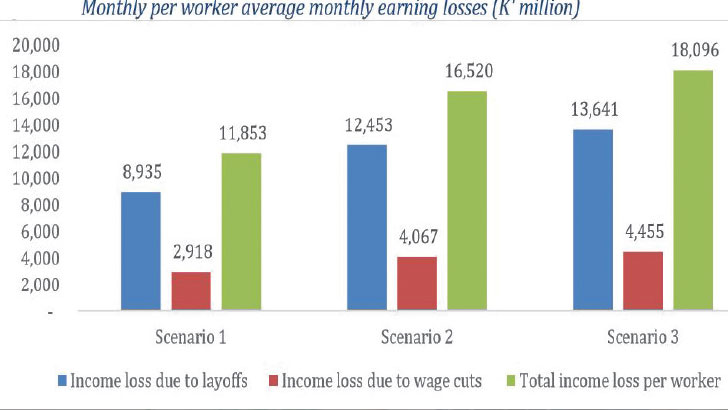Going gets tough For urban poor
The Covid-19 pandemic could push over 147 000 Malawi urban dwellers into poverty, this is according to the World Bank.
Currently, three million people live in urban areas, with around 5.2 million expected by 2030 and 13 million by 2050 and according to the World Bank, urban poverty only increased slightly from 25 percent in 2004 to 26 percent in 2016.
In its recently published Malawi Country Partnership Framework (2021-2025), the World Bank said estimates based on phone surveys indicate that urban poverty could increase further by between 1.6 percent and 4.9 percent.

Data show that although most respondents in September 2020 had kept their jobs, many households had experienced a drop in income since the start of Covid-19.
Reads the report in part: “Covid-19 is a new challenge for poor people in Malawi, especially in urban areas.
“As a result of heightened economic and health risks associated with Covid-19, the share of the population living below the poverty line of $1.90 per day in 2020 is projected to increase by almost a half percentage point.”
In the joint assessment of the impact of Covid-19 on employment in Malawi, the Employers Consultative Association of Malawi and the International Labour Organisation said the pandemic would cost the Malawi labour market between 273 712 and 680 496 current and future jobs.
The projections show that the crisis would cost workers a minimum of K84.6 billion ($112.8 million) in monthly earnings and up to K129.21 billion ($172.28 million) if it reaches March 2021.
In per worker terms, the projections show that the average worker would lose between K11 853 ($16.07) and K18 096 ($24.54) of labour income per month against a baseline monthly income of K104 870 ($142.2) that would be earned had there been no Covid-19.
In an interview on Tuesday, Malawi University of Business and Applied Science economics professor Betchani Tchereni observed that the Covid-19 pandemic has robbed jobs for some urban dwellers and left a lot more with no economic activity to support them.
He said: “This projection is based on the understanding that urban population depends on jobs and small businesses.
“In which case then, we have so many people without proper economic activity to sustain them.”
Speaking separately, consumer rughts activist John Kapito observed that it may take a long time for the country to get out of the current status if strong national economic recovery measures are not put in place.
To cushion poor urban households from the negative effects of Covid-19 on their livelihoods and well-being, the Malawi Government has been giving out K35 000 emergency cash transfer to 199 000 households in the cities of Mzuzu, Lilongwe, Zomba and Blantyre.





